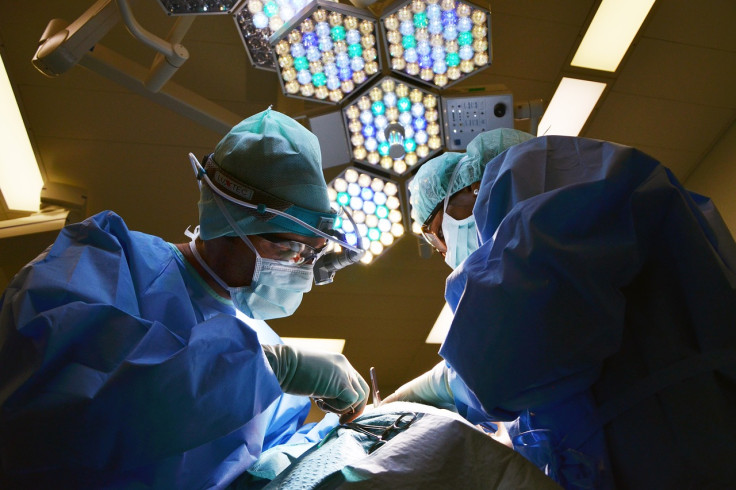Lakshdeep Singh's Transformative Solutions Drive Remarkable Growth In Healthcare Technology
Lakshdeep Singh's ability to integrate advanced technologies into predictive analytics has led to substantial advances in healthcare

Today's healthcare industry has seen the rise of remarkable professionals who are working on innovative solutions that optimise business processes and transform patient outcomes. Lakshdeep Singh, senior principal at IQVIA (formerly IMS Health and Quintiles), combines data and technology to reshape how pharmaceutical companies engage with healthcare providers and patients.
Lakshdeep Singh's ability to integrate advanced technologies, such as artificial intelligence (AI) and machine learning (ML), into predictive analytics has led to substantial advances in healthcare, particularly in patient identification and sales force optimisation. Today, as he leads a multi-million dollar consulting and analytics business, his work demonstrates the influence of data-driven decision-making in the life sciences industry.
Becoming an Authority in Healthcare Technology

With a bachelor's degree in electronics and communication and an MBA in marketing and supply chain management, Lakshdeep Singh's educational background gave him a strong foundation in technical and business disciplines. He leverages his skills to tackle life sciences industry challenges. Now, he leads projects merging data analytics and strategic planning to enhance pharmaceutical operations and patient care.
Since joining IQVIA, Lakshdeep Singh has led the development of AI-driven solutions to improve pharmaceutical companies' decision-making processes. "The key is not just about collecting data," he explains, "but how we use that data to make actionable decisions that directly impact patient care and business growth."
His proficiency in applying advanced analytics has allowed IQVIA to offer comprehensive solutions, including sales force optimisation, patient journey mapping, and brand strategy development, to life sciences clients across the U.S.
Known for his collaborative and empathetic perspective, Lakshdeep Singh has built and managed teams that thrive on innovation. "I believe in empowering my team to explore new ideas and solutions," he says. "When people feel supported and encouraged, real breakthroughs happen."
Innovating Healthcare Through AI and Machine Learning
At the core of Singh's success is his use of AI and ML to drive predictive analytics in healthcare. These technologies have changed how pharmaceutical companies identify and engage with patients, particularly those needing immediate medical intervention.
His 'Promotional Alerts' program, which uses AI to predict which patients may require timely care, has been a critical development in patient engagement strategies. This technique, which he first implemented at Symphony Health in 2017, uses weekly patient-level data to identify individuals at risk of disease progression or needing medication.
He explains, "The ability to predict patient needs before they escalate into critical conditions is one of the most powerful applications of AI in healthcare." More than 50 pharmaceutical companies have since adopted this predictive analytics feature, directly contributing to improving patient outcomes through timely interventions.
Lakshdeep Singh's work in AI extends beyond that. At IQVIA, he has expanded the use of machine learning to optimise sales strategies and enhance patient engagement efforts. His programs, built on predictive models, help pharmaceutical companies identify high-risk patients and tailor their outreach to healthcare providers most likely to treat these patients.
"Data is our most valuable asset in healthcare," he says. "When we combine AI with human aptitude, we can create accurate and impactful solutions."
A Passion for Rare Disease Care
Rare diseases, defined as conditions affecting fewer than 200,000 people in the U.S., present unique challenges for patients and healthcare providers. Early diagnosis is often elusive, and treatment options are limited.
Lakshdeep Singh's use of AI to address these issues has been a turning point. In his article "The Role and Impact of Rare Diseases in US Life Sciences and Healthcare," he emphasises the importance of data in improving rare disease diagnosis and treatment.
He has developed systems that better identify undiagnosed or misdiagnosed patients by integrating diverse data sources, such as electronic medical records, genetic tests, and patient registries.
"The challenge with rare diseases is that they're often overlooked," he notes. "But we can identify patterns that would otherwise go unnoticed using AI and predictive models."
The healthcare sector is also shifting toward more personalised, data-centric solutions. Lakshdeep Singh has helped pharmaceutical companies manage the complexities of drug commercialisation and patient engagement by focusing on sales force optimisation, patient journey mapping, and market assessments.
"Healthcare is becoming more personalised, and that means we need to be more data-driven than ever," he explains.
AI's Impact on the Future of Healthcare Technology
Lakshdeep Singh sees a future where healthcare prioritises advancement driven by data and technology. He sees potential for more sophisticated models to enhance patient care, particularly in rare diseases and personalised medicine.
His dedication to improving care for patients with rare diseases remains central to his long-term vision. "Rare diseases are some of the most challenging conditions to diagnose and treat," he explains. "But with the right tools, we can give patients the care they deserve."
Lakshdeep Singh believes that the future of healthcare lies in integrating more data sources and creating even more precise models for diagnosis and treatment. "We're already seeing the impact of AI in predicting patient needs, but there's much more we can accomplish," he says.
© Copyright IBTimes 2025. All rights reserved.




















